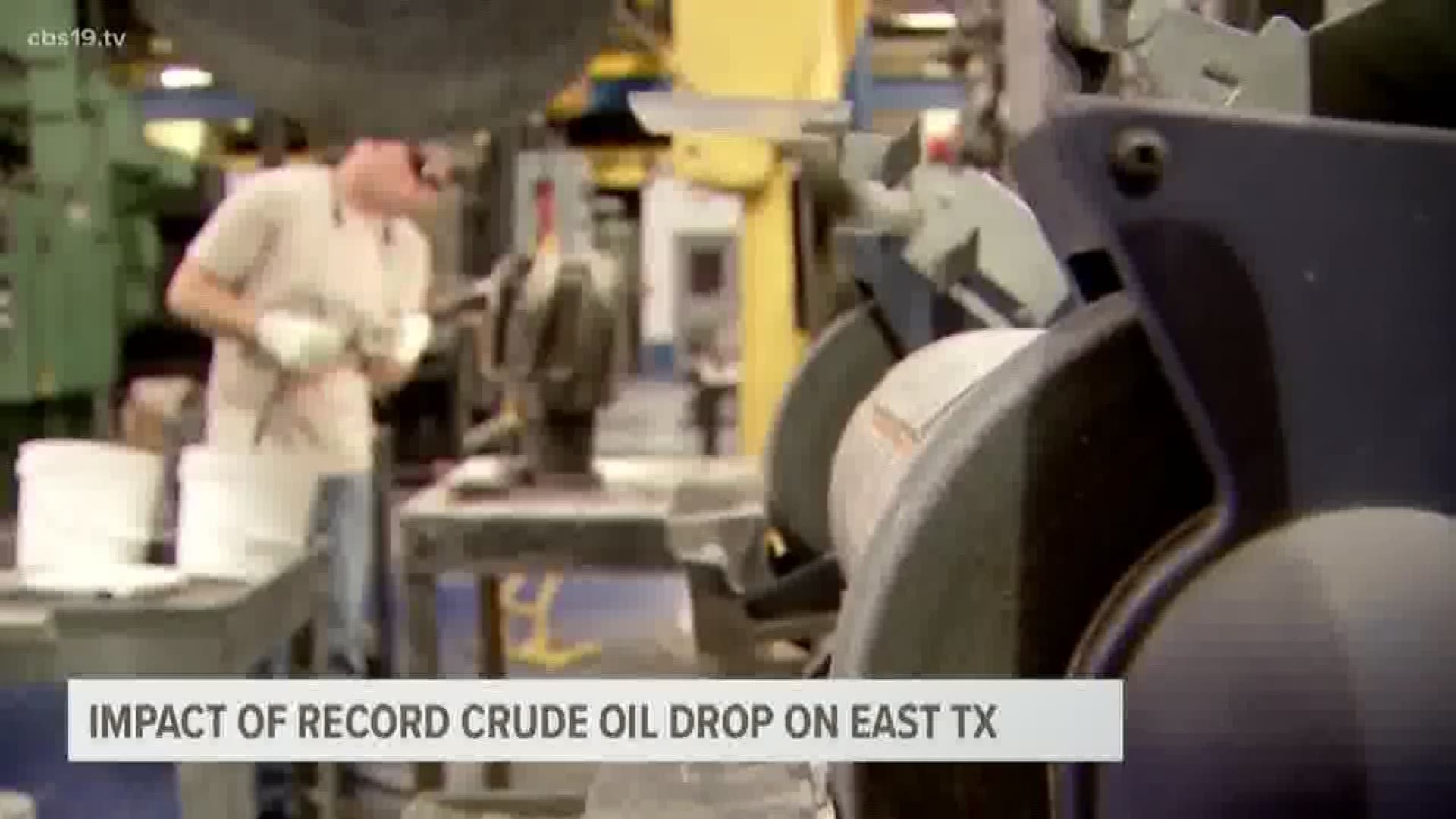TYLER, Texas — It was a day like nobody in Texas had ever seen before. Crude oil prices kept dropping and dropping until investors were getting paid to take it.
“As of today, there is no good news in the oil patch,” Professor Harold Doty said Monday. “Now, it’s not as apocalyptic as it appeared to be late this afternoon. But it’s still not good news.”
Doty, a professor of management in the UT Tyler Soules College of Business, said Monday’s sell-off was caused by speculators who get stuck in bad positions. The final trading day for May crude contracts sent prices tumbling into negative territory for the first time ever, nearly negative $40 a barrel. Professor Doty says this was a case of speculators scrambling, not a true crash.
“If you look carefully, whereas at 2:45 p.m. this afternoon, it looked like oil was [negative] $35 a barrel," Doty explained. "If I look at it right now, because we’ve now changed to the June futures contract, crude oil, West Texas Intermediate, is priced at about $21 a barrel.”
That is approximately the same amount as May contracts were selling for last week. Prices initially fell early in 2020 because of an increase in supply during a price war between Russia and Saudi Arabia, but the COVID-19 pandemic made economic conditions even worse.
OPEC agreed to cut production, and the Texas Railroad Commission is considering forcing production caps, as well. Doty says that might not be enough.
“The global oil industry had talked about cutting as much as 20,000,000 barrels a day in production,” Doty explained. “The trouble is, demand, global demand is down by about 30,000,000 barrels a day, so we are in for hard times in the oil patch no matter what happens. The best-case scenario in the short run is not good.”
While the Texas economy is reliant to a large degree on the energy sector, Doty says East Texas is in better position than the state as a whole.
“I believe that a lot of our production in East Texas is actually natural gas, rather than crude oil,” Doty said. “And surprisingly natural gas prices have been drifting upward.
“But much of the industry is service-related, and we have several service companies located here that are going to see hard times for a short time, at least.”
The oil bust will also have a big impact in Austin, where Doty said fuel taxes and production taxes comprise approximately seven percent of the state budget.
“Never before has Texas dealt with the crash of the retail sector and the energy sector at the same time. So I think that we’ve got some difficult budget days for the state budget in the next legislative session," Doty said. “There’s not gonna be as much to address all of the special interests as there might have been in the past. And our legislators are going to be very challenged this year to meet, to prioritize our needs and then to meet them at the necessary levels.”
According to Doty, the indirect effects will be even scarier, as many workers turn to unemployment benefits and discretionary spending drops.
Doty says it would be a minimum of months, not weeks, before the state’s energy sector turns around.
“And I’m not sure we’ve seen the darkest days for the economy, yet,” Doty stated. “But then it’s gonna take 18-24 months for things to really pull out and return to the level we were pre-crisis.”

